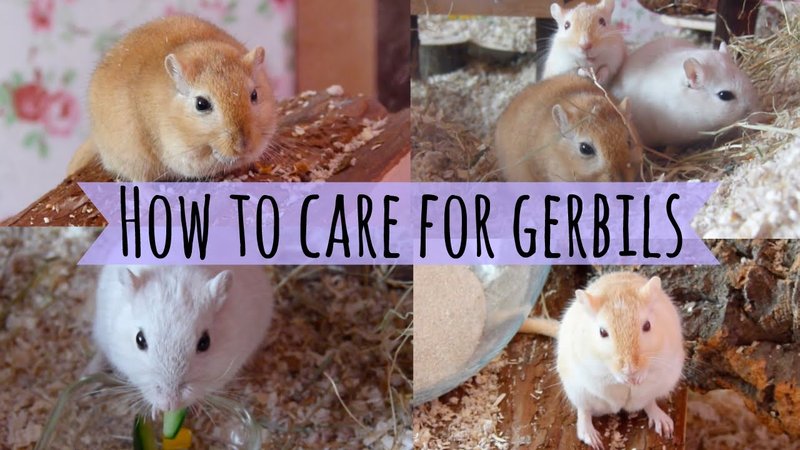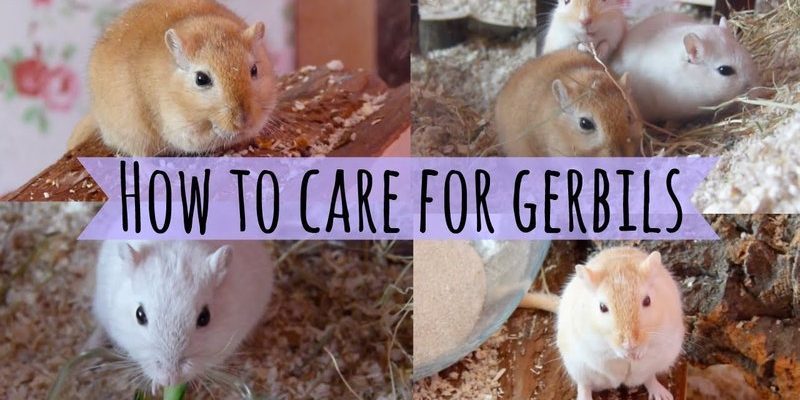
When it comes to pet ownership, particularly with exotic animals like gerbils, understanding the legalities and ethics can save you from potential trouble down the line. This isn’t just about following the law; it’s also about being a compassionate and responsible pet owner. Let’s dive into this topic to uncover the important aspects you need to know.
Understanding Local Laws and Regulations
Before bringing a gerbil home, it’s essential to check your local laws regarding pet ownership. Different cities and countries have varying regulations about which animals can be kept as pets. Some areas may require permits for exotic pets, even if they seem as common as gerbils. Knowing these laws is not just a box to tick; it could save you from fines or even losing your pet.
For example, in some states, certain breeds of animals are restricted or prohibited entirely. You might think, “But they’re just gerbils!” However, regulations can be tricky. Always check with local animal control or government websites for comprehensive guidelines. This step ensures you’re not only compliant but also sets a solid foundation for responsible ownership.
Permits and Licensing
While gerbils typically don’t require permits in most areas, it’s wise to check specifics. If you live in a place that requires licensing for certain animals, you’ll want to ensure your pet falls within the permissible guidelines. Obtaining a license is usually straightforward and often involves filling out a form and paying a fee.
In some regions, failing to register your pet can lead to penalties. Plus, acquiring a license often comes with benefits like access to resources and support from local animal services. So, it’s not just about legality; it’s a way to connect with the pet-loving community.
Ethical Treatment of Gerbils
Adopting a pet should come with a commitment to their well-being. This means understanding their social needs, habitat requirements, and diet. Gerbils are social animals that thrive with companionship, so it’s recommended to keep them in pairs or small groups. Providing them with a suitable environment to explore and play is crucial for their happiness.
Moreover, keep in mind that ethical treatment extends beyond just the basics. It includes understanding their behavior and social structure. For instance, male gerbils tend to be more territorial than females, which could impact their living arrangements. You might wonder why this matters. Well, a harmonious living situation can reduce stress for these little guys, making your home a happier place.
Providing Adequate Space and Environment
Creating a comfortable environment is not just nice to have; it’s essential. Gerbils require enough space to burrow, run, and explore. A small cage won’t cut it. Aim for a habitat that allows them to display natural behaviors. Providing tunnels, chew toys, and a safe place to burrow will make your gerbils feel right at home.
Additionally, consider the material of the cage. Wire cages can be great, but they need to be escape-proof. Gerbils are curious creatures and can easily squirm through small spaces. Ensuring safety in their living area is a key part of ethical ownership.
Health and Veterinary Care
Keeping your gerbil healthy involves regular check-ups with a vet who specializes in exotic pets. Just like our cats and dogs, gerbils can face health issues. This could be anything from dental problems to skin conditions. Finding a vet who understands gerbil care is crucial.
You might be thinking, “But they’re so small, why would I need a vet?” Here’s the thing: even tiny animals need attention. Regular vet visits can catch issues before they escalate, ensuring your pet lives a long, healthy life. It’s part of your responsibility as a pet owner to be proactive about their health.
Common Health Issues and Prevention
Some common health issues gerbils face include wet tail (a serious intestinal condition), dental problems, and respiratory issues. Recognizing the signs early can make a significant difference. For example, if your gerbil is lethargic or its fur looks unkempt, it could be time for a vet visit.
Prevention is also possible. Keeping their habitat clean, providing a balanced diet, and ensuring they have plenty of exercise will go a long way in keeping them healthy. Plus, being attentive to changes in their behavior can help you catch potential health risks early.
Responsible Breeding Practices
If you’re considering breeding gerbils, understanding responsible practices is essential. This means researching genetics, health, and proper care for both parents and pups. Unplanned breeding can lead to overpopulation, which often results in many gerbils ending up in shelters.
Here’s the thing: breeding isn’t just about having cute babies; it’s a commitment. You’ll need to find homes for those pups and ensure they’re going to responsible owners. If you’re not ready for that level of responsibility, it might be best to enjoy your gerbils as pets only.
Spaying and Neutering
If you have both male and female gerbils, consider spaying or neutering to prevent unplanned litters. This procedure not only helps control the population but can also enhance your pets’ behavior. Spaying females can reduce the risk of certain health issues, too. It’s a win-win for everyone involved.
Before proceeding, consult with an experienced vet. Make sure the clinic has a good track record with these small animals. After all, you want to ensure that your little friends are in safe hands during the procedure.
Community and Awareness
Engaging with the gerbil community can be a rewarding part of ownership. Local pet stores and online forums can provide a wealth of information on best practices, health tips, and training advice. Plus, talking to other gerbil owners can help share knowledge and experiences, making you a more informed pet parent.
Being part of a community also raises awareness about ethical treatment and responsible ownership. You might find yourself inspired to become an advocate for gerbil care, whether through sharing your experience online or volunteering at local animal shelters.
Resources for Pet Owners
There are plenty of resources available to help you navigate gerbil ownership. Books, online articles, and even social media groups dedicated to gerbil care can provide support. You can find everything from dietary guidelines to tips on creating the perfect habitat. Dive into these resources to deepen your understanding and become the best pet parent you can be.
In addition, organizations like the Gerbil Society offer extensive information about proper care and breeding practices. Having a reliable source to turn to can make a world of difference in your journey as a pet owner.
Final Thoughts
Owning gerbils can be a joyful experience, but it comes with its share of responsibilities. From understanding local laws to ensuring your pets live in a safe, enriching environment, every step you take matters. Remember, your goal is to provide a loving home for your little furry friends.
By staying informed and committed to ethical practices, you not only enhance your gerbils’ lives but also contribute positively to the larger community of pet owners. So, whether you’re just starting out or looking to deepen your knowledge, the journey of gerbil ownership can be an exciting adventure—just make sure you’re navigating it with care and compassion.

